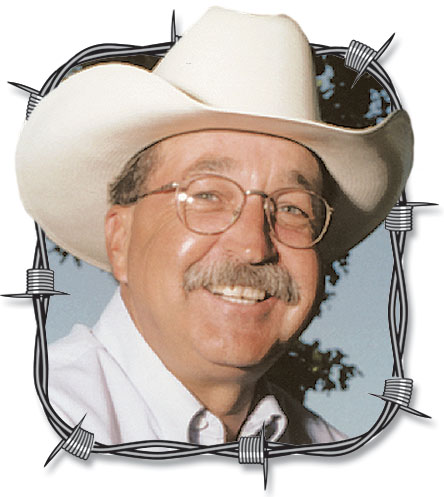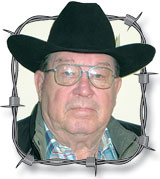 According to historians, the era of the cowboy on horseback ended when the 20th century rolled around. Westward expansion of the railroads, the introduction of barbed wire, and the mechanization of modern farming methods all combined to make the profession obsolete, so they say. Fortunately, there are some that still exist.
According to historians, the era of the cowboy on horseback ended when the 20th century rolled around. Westward expansion of the railroads, the introduction of barbed wire, and the mechanization of modern farming methods all combined to make the profession obsolete, so they say. Fortunately, there are some that still exist.
I live just about halfway between two of the largest livestock auction barns in the country. Every day, a person can go to either one and find real cowboys, atop their horses, driving cattle from the sales ring back to their assigned holding pens all day and night. If you travel farther west to the feedlots of the high plains, you can also witness the real things riding the pens each day in search of animals that need doctoring or sorting. Cowboys and their horses are also still needed on large ranches, processing facilities and, thankfully for me, not-so-big operations where the owners are getting old and need the skills and abilities of real cowboys three or four times per year. But, even those few and specific needs for real cowboys could be coming to an end.
Just last week, I read where one of the largest beef processors in the country has ordered a fleet of mechanical robots to replace their crew of cowboys to move the animals within their facility. These three-wheeled robots are about the size and weight of a little smart car and are remotely controlled by a person situated safely on a catwalk above the commotion below them. According to the PR director, “this will enable the animals to be moved less stressfully and without danger to humans.” He also emphasized the fact that the people operating the robots would still have to be very adept at understanding animal behavior and possess a great deal of “cow sense” in order to move everything along efficiently, inferring that they were going to retrain the cowboys to operate the robotic controls, which “resemble the thumb-controllers of a video game unit.” He added that those cowboys, who were already skilled at playing video games, would certainly have an advantage in quickly learning how to operate the robots.
Now, Houston, we have a problem.
Because I’ve used the same basic crew of cowboys on my ranch for almost twenty years, I’ve gotten to know them pretty good and consider them good friends, as well. On their twice-yearly visits to my place, we’ve always swapped stories and kept each other up-to-date on kids and families, and I’ve never once heard any of them talk about playing video games for fun or relaxation. All of them are certainly smart enough to learn how to play a video game…or fly a drone…or operate a robot. But, if they do, I’d bet a day’s pay that none of them are very good at operating the little, hand-held control pad. Because these guys have spent a lifetime riding their horses and roping wild critters, most of them are missing at least one of their thumbs.
Jerry Crownover farms in Lawrence County. He is a former professor of Agriculture Education at Missouri State University, and is an author and professional speaker. To contact Jerry, go to ozarksfn.com and click on ‘Contact Us.’






